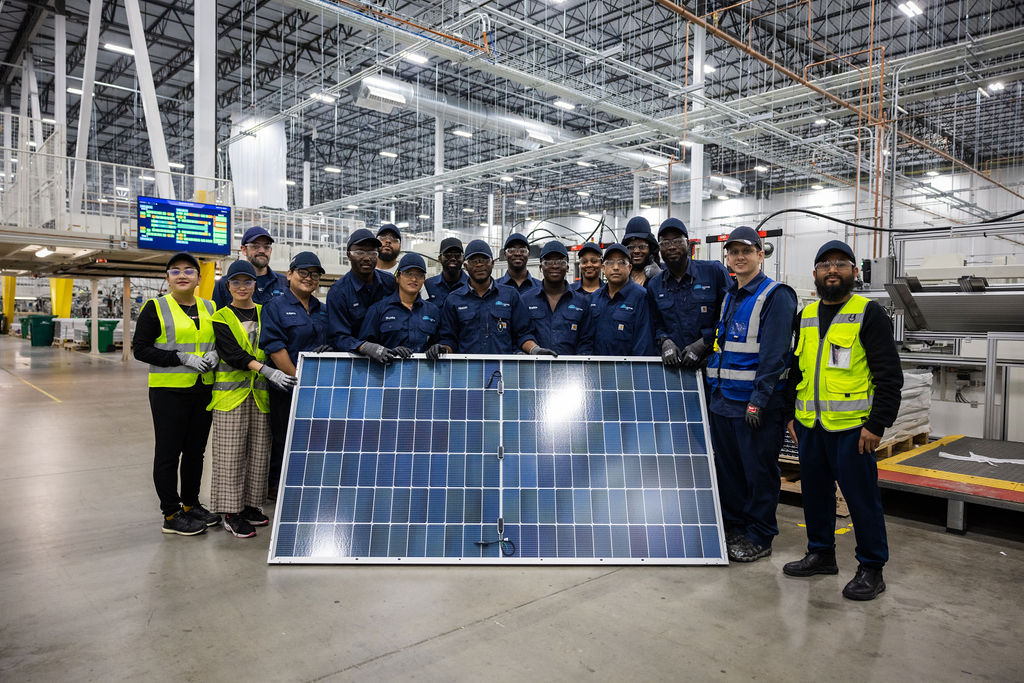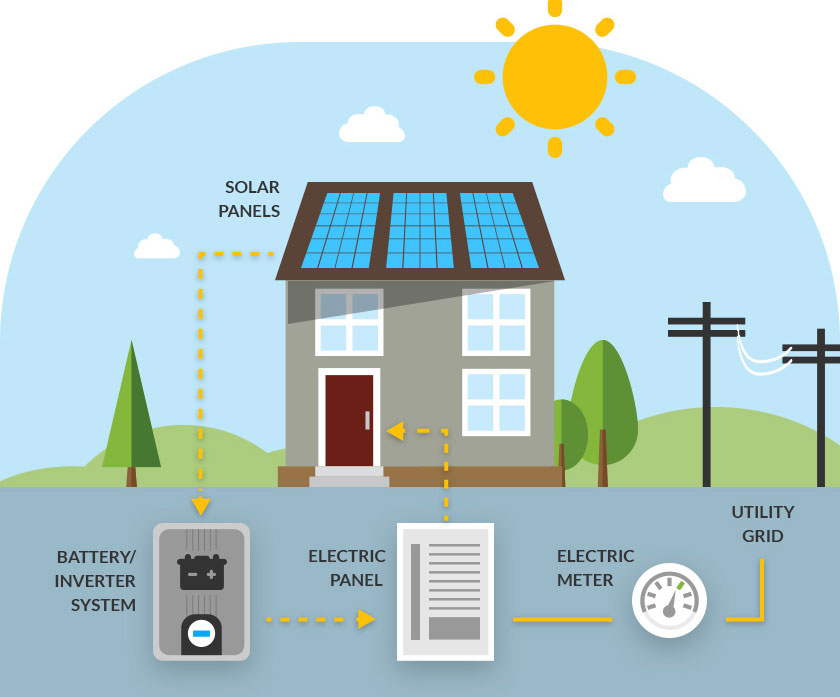Virginia Solar Panel Rebates: Lumina Solar Specializes In Offering Advanced Photovoltaic Solutions For Residences And Organizations
History and Founding
Have you ever wondered how a photovoltaic panel company springs from a simple spark of motivation into a powerhouse of renewable resource? It frequently starts with a vision-- one sustained by a mix of development, decision, and a pinch of serendipity. The journey of lots of solar business mirrors the evolution of the innovation itself: from large, ineffective panels to streamlined, high-efficiency marvels utilizing the sun's bounty.
The Early Days
In the late 20th century, when solar energy was still a specific niche concept, leaders planted seeds for what would end up being a worldwide motion. Imagine a little workshop filled with curious engineers, tirelessly experimenting with photovoltaic cells. Their passion was palpable, typically driven by a desire to combat climate modification and reduce dependence on fossil fuels.
One such anecdote has to do with a creator who, influenced by a camping trip, realized that even in remote areas, the sun might power necessary gadgets. This easy observation stimulated a company's objective to equalize access to clean energy.
Founding Principles

- Innovation: Constantly pushing the limits of solar innovation to improve efficiency and durability.
- Sustainability: Dedicating to environmentally friendly manufacturing and reducing carbon footprints.
- Ease of access: Making renewable energy options budget-friendly and practical for daily users.
Milestones in Growth
| Year | Secret Occasion |
|---|---|
| 1985 | Company established in a little garage, concentrating on research and development. |
| 1995 | Industrial solar panel item introduced, gaining local attention. |
| 2005 | Broadened to international markets, accepting global renewable resource goals. |
| 2015 | Introduced innovative photovoltaic panel innovation with improved energy conversion. |
Isn't it remarkable how these incremental actions, often ignored, form the energy landscape today? The solar panel company story is not just about technology; it has to do with an unrelenting mission for a brighter, cleaner future.

Innovations in Photovoltaic Panel Technologies
Ever observed how some photovoltaic panels shine brighter and last longer? It's not magic; it's the science of photovoltaic performance. Modern photovoltaic panel business invest heavily in innovations like bifacial cells, which record sunlight from both sides, boosting energy harvest without broadening roof area. more info Have you ever wondered why some panels carry out much better on cloudy days? That is because of advances in thin-film solar technology, which flourishes under diffused light conditions.
Product Variations Customized to Special Needs
One size never fits all. Solar panel suppliers now provide:
- Monocrystalline panels for optimum efficiency and smooth aesthetics, perfect for space-constrained roofs.
- Polycrystalline panels, which offer an economical alternative without compromising excessive output.
- Building-integrated photovoltaics (BIPV), combining solar tech flawlessly into architectural components like windows and exteriors.
Selecting the ideal item isn't practically upfront expense; it has to do with matching your environment, energy objectives, and long-term savings. Homes shaded by trees require panels that stand out in low-light scenarios, something numerous overlook up until energy expenses climb suddenly.
Technical Tips for Optimum Selection
- Evaluate the temperature coefficient-- lower values suggest panels lose less efficiency on hot days.
- Try to find panels with enhanced anti-reflective coatings to maximize light absorption.
- Consider the panel's warranty not simply for problems, however for guaranteed power output over decades.
- Do not ignore the significance of the inverter technology paired with the panels; it can make or break your system's performance.
Beyond Panels: Emerging Trends
Envision solar panels that adjust their angle instantly to chase the sun-- tracking systems are ending up being more available, increasing yield substantially. Or solar tiles that mix invisibly into your roofline, transforming your home into a silent, self-sufficient power generator. These innovations are improving what a photovoltaic panel business offers-- not just products, but integrated energy options.
Market Presence and Global Operations
Ever question why some photovoltaic panel business seem to sprout up in every corner of the world while others hardly make a ripple? The difference lies not just in innovation but in mastering the art of browsing diverse markets. Expanding globally is like planting seeds in various climates-- you must understand each environment's distinct conditions to prosper.
Take, for instance, the intricate dance of logistics and supply chain management. Delivering panels halfway throughout the world isn't just about range; it's about timing, customizeds, tariffs, and adjusting to regional demand changes. A company with robust worldwide operations anticipates these variables, making sure panels get here on schedule without inflating expenses. This foresight is no little accomplishment and typically separates market leaders from fans.
Key Strategies for Expanding Market Presence
- Localized production: Establishing production centers near target markets minimizes shipping delays and import intricacies.
- Strategic partnerships: Teaming up with regional companies speeds up market penetration and constructs trust.
- Adaptive product design: Customizing solar panel tech to weather, sun intensity, and infrastructure subtleties enhances efficiency and acceptance.
What about the human aspect? Solar panel companies operating internationally must reconcile cultural distinctions and regulatory nuances without losing sight of their core objective. For instance, what works in a sun-drenched desert may falter in a humid seaside region. In some cases, the most ingenious option is simply listening-- absorbing local insights to refine innovation and approach.
Specialists typically advise a phased rollout rather than a shotgun expansion. Why risk overextension when determined growth constructs sustainable momentum? Scaling sensibly means balancing aspiration with functional strength - Solar Panel Company. After all, in the race for sustainable energy dominance, patience can be as valuable as speed
Ecological Impact and Sustainability Practices
When photovoltaic panels first emerged, numerous assumed they carried absolutely no ecological baggage. However, the truth is more nuanced. The production of solar batteries involves rare earth metals and energy-intensive processes, which can leave a sizable carbon footprint before the panels even reach rooftops. Yet, the real environmental expense depends heavily on the sustainability practices employed by the photovoltaic panel business throughout the lifecycle of their items.
How frequently do we pause to consider what occurs to photovoltaic panels at the end of their beneficial life? Unlike batteries or electronics, solar panels can last 25-30 years, but disposal and recycling paths remain underdeveloped in lots of areas. A company devoted to lowering ecological damage will have a robust strategy for recycling photovoltaic products, salvaging valuable silicon, glass, and metals to prevent land fill accumulation.
Key Sustainability Techniques
- Using low-impact manufacturing methods that decrease water and energy usage.
- Executing closed-loop systems to recycle production waste back into new panels.
- Engaging in transparent supply chain audits to make sure ethical sourcing of basic materials.
- Creating panels for much easier disassembly to help future recycling efforts.
It deserves noting that some solar companies have pioneered ingenious techniques, such as incorporating biodegradable components or using less harmful chemicals throughout fabrication. This not only minimizes ecological pressure but likewise sets a precedent for the industry. The question remains: can the solar market truly pivot towards a circular economy design without compromising performance or price?
Professional Tips for Evaluating Sustainability
- Ask about the company's dedication to carbon-neutral production and whether they balance out emissions.
- Investigate if they partner with accredited recycling centers committed to photovoltaic panel waste.
- Search for transparency reports detailing ecological impacts and sustainability goals.
- Consider the durability and service warranty of panels as an indirect procedure of resource performance.
In the end, choosing solar energy ought to mean more than simply slashing electrical energy expenses; it's about supporting a future where energy is gathered properly and waste is thoughtfully managed. Photovoltaic panel companies that welcome this philosophy not just light up homes but also cast a brighter light on sustainable development.